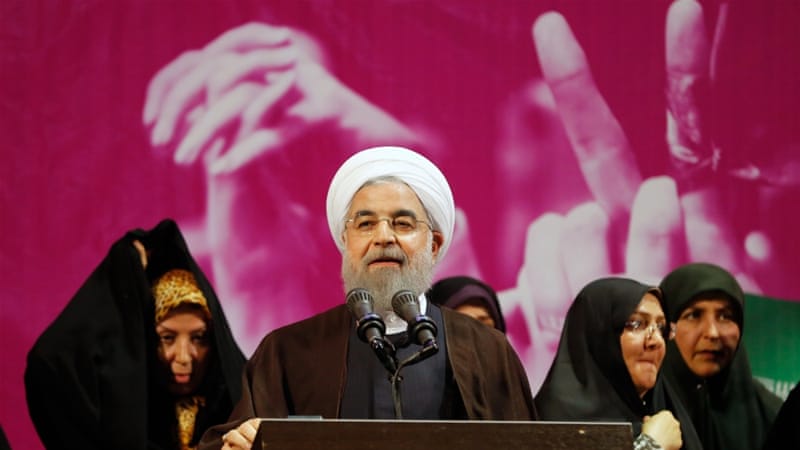Rouhani had 14.6 million out of 25.9 million votes counted so far, Ali Asghar Ahmad, the head of the election committee, announced on state television. His closest rival, principlist Ebrahim Raisi, had 10.1 million votes.
 mRouhani first took office in 2013 promising to open Iran to the world [EPA]
mRouhani first took office in 2013 promising to open Iran to the world [EPA]
Two other candidates, conservative Mostafa Mirsalim and reformist Mostafa Hashemitaba, were also in the ballot, though they are not expected to win more than a few percent of the vote.
A big turnout on Friday, estimated at more than 40 million out of 56 million registered voters, led to the vote being extended by several hours to deal with long queues.
With results from urban areas still to be counted – and seen by analysts as more likely to favour Rouhani – the initial figures pointed towards a landslide for the incumbent.
Final results are expected later on Saturday.
Campaign pledges
|
|